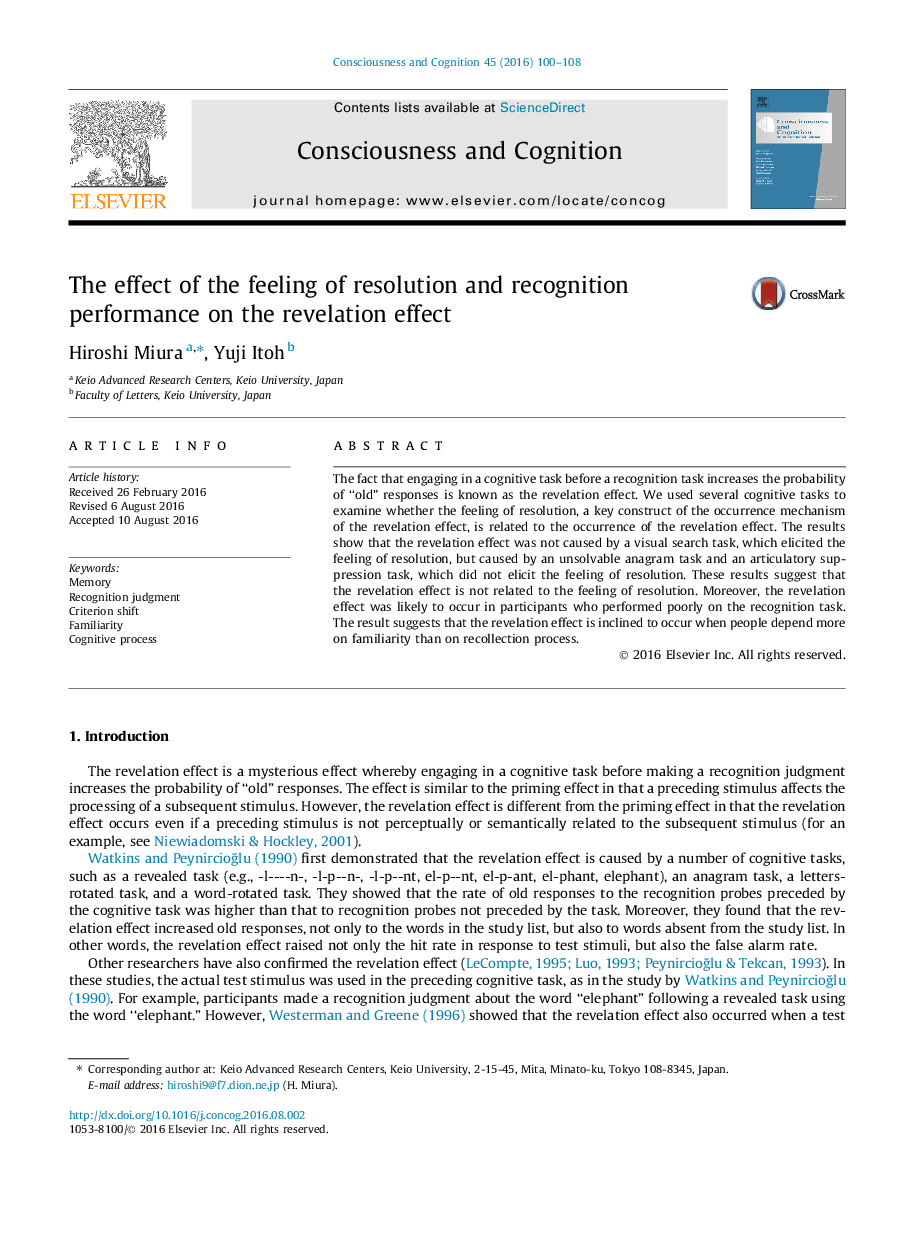| کد مقاله | کد نشریه | سال انتشار | مقاله انگلیسی | نسخه تمام متن |
|---|---|---|---|---|
| 927510 | 1474166 | 2016 | 9 صفحه PDF | دانلود رایگان |
• Occurrence of the revelation effect is not related to the feeling of resolution.
• The revelation effect is likely to occur in people who perform poorly on the recognition task.
• Not all cognitive tasks cause the revelation effect.
The fact that engaging in a cognitive task before a recognition task increases the probability of “old” responses is known as the revelation effect. We used several cognitive tasks to examine whether the feeling of resolution, a key construct of the occurrence mechanism of the revelation effect, is related to the occurrence of the revelation effect. The results show that the revelation effect was not caused by a visual search task, which elicited the feeling of resolution, but caused by an unsolvable anagram task and an articulatory suppression task, which did not elicit the feeling of resolution. These results suggest that the revelation effect is not related to the feeling of resolution. Moreover, the revelation effect was likely to occur in participants who performed poorly on the recognition task. The result suggests that the revelation effect is inclined to occur when people depend more on familiarity than on recollection process.
Journal: Consciousness and Cognition - Volume 45, October 2016, Pages 100–108
